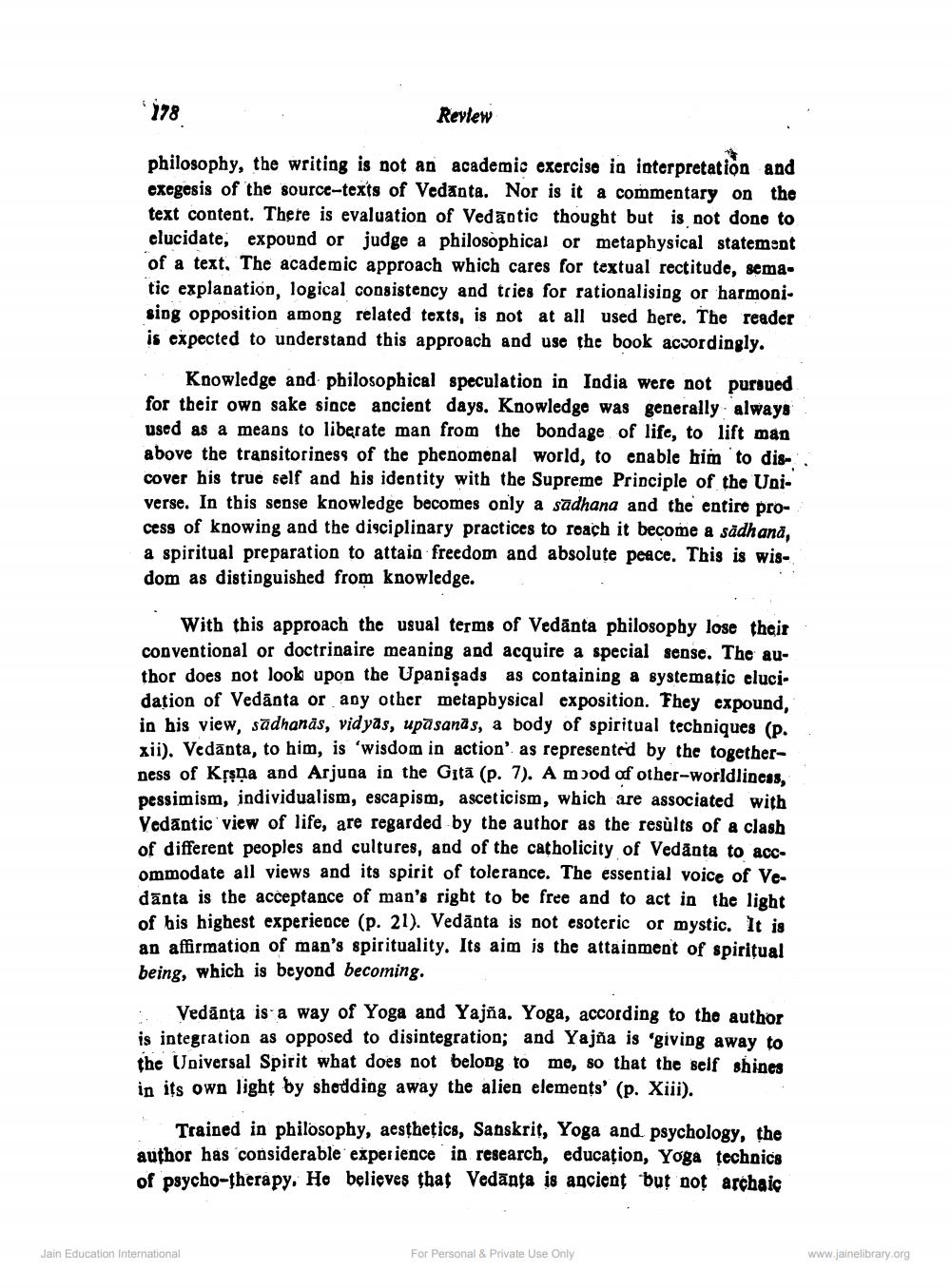________________
178
Review
philosophy, the writing is not an academic exercise in interpretation and exegesis of the source-texts of Vedanta. Nor is it a commentary on the text content. There is evaluation of Vedāntic thought but is not done to elucidate, expound or judge a philosophical or metaphysical statement of a text. The academic approach which cares for textual rectitude, sematic explanation, logical consistency and tries for rationalising or harmonising opposition among related texts, is not at all used here. The reader is expected to understand this approach and use the book accordingly.
Knowledge and philosophical speculation in India were not pursued for their own sake since ancient days. Knowledge was generally always used as a means to liberate man from the bondage of life, to lift man above the transitoriness of the phenomenal world, to enable him to discover his true self and his identity with the Supreme Principle of the Universe. In this sense knowledge becomes only a sadhana and the entire process of knowing and the disciplinary practices to reach it become a sadh ană, a spiritual preparation to attain freedom and absolute peace. This is wisdom as distinguished from knowledge.
With this approach the usual terms of Vedānta philosophy lose their conventional or doctrinaire meaning and acquire a special sense. The author does not look upon the Upanişads as containing a systematic elucidation of Vedānta or any other metapbysical exposition. They expound, in his view, sadhanas, vidyas, upā sanās, a body of spiritual techniques (p. xii). Vedānta, to him, is 'wisdom in action’ as represented by the togetherness of Krşņa and Arjuna in the Gita (p. 7). A mood of other-worldliness, pessimism, individualism, escapism, asceticism, which are associated with Vedāntic view of life, are regarded by the author as the results of a clash of different peoples and cultures, and of the catholicity of Vedānta to accommodate all views and its spirit of tolerance. The essential voice of Vedānta is the acceptance of man's right to be free and to act in the light of his highest experience (p. 21). Vedānta is not esoteric or mystic. It is an affirmation of man's spirituality. Its aim is the attainment of spiritual being, which is beyond becoming.
Vedānta is a way of Yoga and Yajña. Yoga, according to the author is integration as opposed to disintegration; and Yajña is 'giving away to the Universal Spirit what does not belong to me, so that the self shines in its own light by shodding away the alien elements' (p. Xiii).
Trained in philosophy, aesthetics, Sanskrit, Yoga and psychology, the author has considerable experience in research, education, Yoga technics of psycho-therapy. He believes that Vedanta is ancient but not archaic
Jain Education International
For Personal & Private Use Only
www.jainelibrary.org




